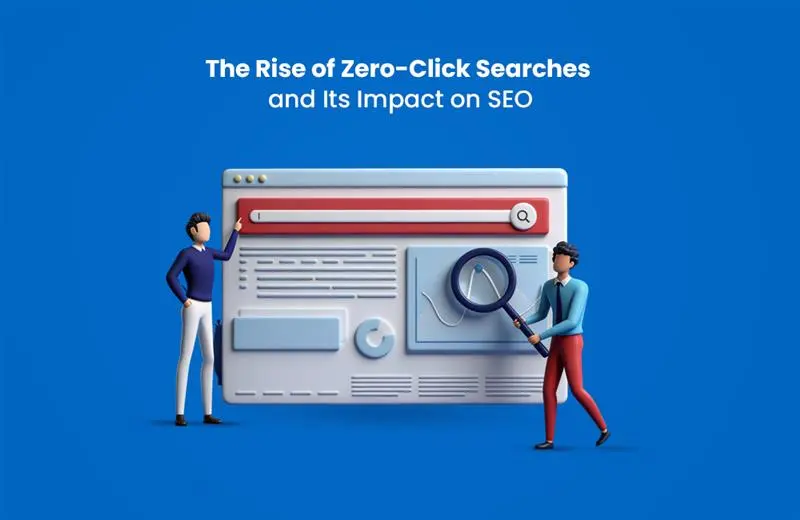
Common Types of Schema Markup
Schema markup, also known as structured data, is recognized as a code that helps search engines understand your content better. It should be implemented in your website so your content will appear as a rich snippet. This will lead to improved content visibility and click-through rates. There are different types of schema markup, including article schema, product schema, FAQ schema, and so on. Let’s have a detailed look at different types of schema in SEO in this blog.
Article Schema
Article Schema is a structured data intended to assist search engines in better understanding the content of a website’s articles. It indicates components of your content so that search engines can provide it in a more useful and appealing manner in search results. It allows search engines to display crucial details like the article title, author, and publication date. Search results on Google Search and other properties like Google News and the Google Assistant will display better title text, images, and date information for your articles if you add article schema to your relevant pages.
Not only does it enhance visibility, but it is also crucial in boosting the authority of your website. While search engines precisely identify the source, author, and publication date, Article Schema establishes trust among the users. Building this trust is what ultimately leads to higher engagement rates and recurring traffic to your website. Hence, Article Schema is considered one of the most important types of schema markup.
Product Schema
Product schema is an essential part of any e-commerce website. Using the product schema, you can include particular product attributes in your product listings that can show up as rich results on the search engine results page (SERP). Among these attributes are reviews, ratings, product variants, awards, descriptions, and offers for prices. This helps your product to stand out in search results as it offers the key information that a user searches for.
Product Schema is also responsible for improving the overall shopping journey. This is done by providing detailed, structured product data within search results. This ensures transparency and thus helps reduce bounce rates, as users are already aware of what to expect before they visit your website. Moreover, the traffic coming to your e-commerce site would be made more qualified and conversion ready. For any type of schema in SEO related to online selling, Product Schema is considered mandatory.
Review Schema
Review schema is a structured data markup that allows search engines to recognise and show user reviews, product ratings, and other feedback in search results. Implementing a review schema creates an increased opportunity for your website to appear in a rich snippet in search results. This will, in turn, increase the click-through rate and user engagement on your page. As ratings, reviews, and other valid information are available, review schema will improve your website’s credibility.
Review Schema further strengthens your brand reputation in search results. Positive ratings, customer reviews, testimonials etc., displayed on SERPs can make your website stand out among those of your competitors’. By effectively leveraging this schema, one can encourage decision-making on the basis of trust. This is especially critical for e-commerce, hospitality, healthcare, and service-based industries. Among the different types of schema markup, Review Schema is particularly powerful because it directly influences users and acts as a trust factor.
FAQ Schema
Frequently asked questions and answers are arranged using a structured data markup called an FAQ schema, which qualifies material for a collapsible FAQ section in search results. This possibly helps in improving visibility and click-through rates of your website, as it offers quick access to important information for the users.
Using FAQ Schema also makes your content voice-search friendly. As people are increasingly turning to digital assistance, this is very likely to be effective. Since voice queries are often in the form of questions, marking up your FAQs can help your website become the answer to queries, improving both visibility and authority. This is one of the schema markup types that is also capable of enhancing your chances of being featured in Google’s “People Also Ask” results.
Local Business Schema
Local business schema is one of the other Google schema types that helps search engines identify the important details about a local business. It includes the name, address, phone number, opening and closing hours, and so on, making it easier for the local customers to find it. Including local businesses, schema helps in increasing the visibility of your website in the search results for location-based queries.
Businesses that rely mostly on footfall and local customers are most likely to benefit from this schema. It helps make critical information like address, contact details, opening hours etc. easily accessible. Not only does this improve local engagement, it plays a major role in directly influencing foot traffic. Moreover, among the different types of schema markup, Local Business Schema proves most effective for restaurants, clinics, and retail outlets that are mainly focused on local SEO.
Video Schema
Video schema is one of the other types of schema markup, in which the code helps the search engines to understand your video content more accurately. Adding video schema markup to your web pages provides more information about your videos. It includes the video titles, descriptions, thumbnails, duration of the video, date of uploading, etc. This schema is useful for businesses that employ video marketing to engage their audience and raise their search engine rankings.
The addition of Video Schema can also increase the chances of your videos being featured in Google’s video carousel or “key moments” highlights. This not only improves search rankings but also increases watch time as users find the most relevant parts of your content faster. Among the many schema markup types, Video Schema is ideal for brands leveraging video marketing to boost ROI.
Recipe Schema
The recipe schema is used for content related to food. By providing Google with structured data about your recipe, you are aiding users in finding the recipe content easily. Google can better comprehend your recipe and display it to consumers in engaging ways when you include details like nutrition facts, cooking and preparation times, other instructions, and reviewer ratings. Recipes may show up in Google Images and Google Search results.
Implementing Recipe Schema gives food blogs and culinary websites a distinct edge by making their content interactive and visually appealing. Features like step-by-step instructions, cooking times, and ratings make recipes more engaging, which can attract a loyal audience. For websites publishing food-related content, this type of schema in SEO is highly effective in driving visibility through Google rich cards and search results.
Event Schema
Event markup or event schema is a kind of structured data created especially to give search engines detailed information about your events. Search engines can correctly comprehend the key components of your events, such as the name of the event, location, dates, organisers, and more. By directly showing relevant details in search results, this schema type assists companies and organisations in more efficiently promoting events.
Event Schema can significantly improve event promotion efforts by providing users with all the necessary details in a quick, digestible format. It also allows search engines to showcase your events in specialized event listings. Within the types of schema markup available, this is the most effective choice for companies or organizations that want to boost attendance and engagement.
Why is Schema Markup Important?
Schema markup is more critical than ever, and here’s why:
Boosts click-through rates: Structured data consistently improves performance. Rotten Tomatoes saw a 25% CTR increase, Food Network gained 35% more visits, and Nestlé achieved 82% higher CTR. Studies show certain schema markup types can boost CTR by up to 82%.
Rapid adoption: By 2024, over 45 million domains – around 12% of all registered sites – had implemented schema, proving the importance of adopting the right type of schema in SEO.
Key for AI-driven and zero-click search: In the age of AI overviews, voice assistants, and semantic search, schema helps algorithms clearly understand your content, increasing chances of appearing in different types of schema markup like rich snippets and AI answers.
Common Mistakes to Avoid
Although schema markup is powerful, these commonly made errors can affect its results:
Using the wrong schema: Applying schema that doesn’t correlate with your content can confuse search engines and reduce eligibility for effective results. Always choose the most accurate option among the many schema markup types available.
Not validating code: Improperly formatted or broken schema will not deliver results. Use tools like Google Search Console to ensure your chosen type of schema in SEO is implemented correctly.
Overusing or duplicating schema: Using too many schemas or repeating them can also confuse search engines. Instead, try to use the most relevant of the different types of schema markup per page for the best results.
Conclusion
Implementing various forms of schema markup into your website will increase the user experience, search visibility, and CTR. This improvement in these metrics is because they provide valuable information to the users. However, if you want to make use of the full potential of schema markup, you should first identify the right Google schema that you should use according to your content type. Every sort of schema, from product schema for e-commerce websites to article schema for blogs, has a specific function in improving content accessibility for users and search engines.
For expert guidance in implementing different types of schema in SEO for your websites, you can seek assistance. You can connect with any digital marketing agency in Kerala, like Dinero, to fulfill your requirements. Being a top provider of SEO services in Kochi, we are equipped with strategies and the right talents to resolve your concerns. Check out our previous blog on the Role of Schema Markup in SEO to understand how it can benefit your website’s performance.
Anuja Benny
Anuja is a skilled content writer with 4 years of experience crafting engaging and impactful content. She has a knack for delivering clear and audience-focused writing through blogs, articles, copies, technical writing, case studies, and so on. With a keen eye for detail, she is dedicated to delivering high-quality content to connect with the right audience.














